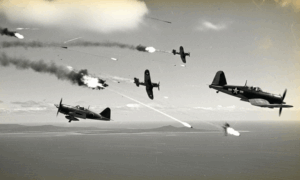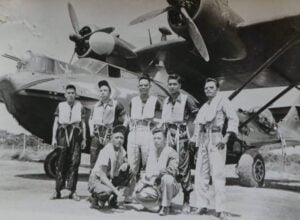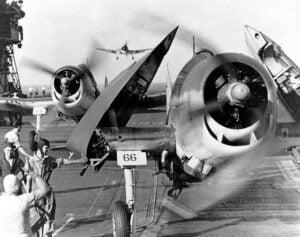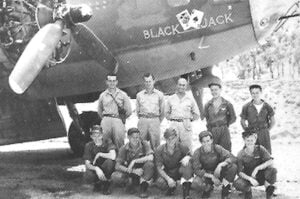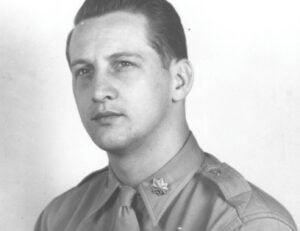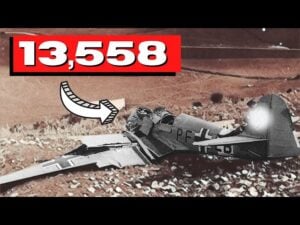Texas Woman Pilot Keeps WWII History Alive by Flying Iconic B-25 Bomber ‘Devil Dog’
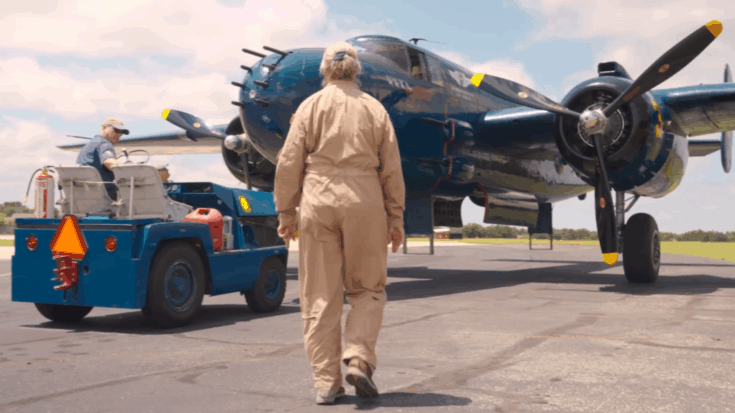
Texas Country Reporter / YouTube
Flying History Through Texas Skies
During World War II, the B-25 Mitchell was one of the most recognized medium bombers used by American forces. It played a major role in bombing missions across Europe and the Pacific. Today, fewer than 50 of these aircraft remain in flying condition. One of them, a Marine Corps version called the PBJ-1J and nicknamed “Devil Dog,” still takes to the skies thanks to the work of Beth Jenkins and the Commemorative Air Force.
Beth Jenkins is more than a pilot. She’s a certified flight instructor and the driving force behind keeping Devil Dog flying. She and her team make sure that the memory of the young men—many just 18 or 19—who flew these planes in wartime continues to live on. “The best part of the job,” she says, “is letting these people know hey, this is history, and they can feel it and touch it.”
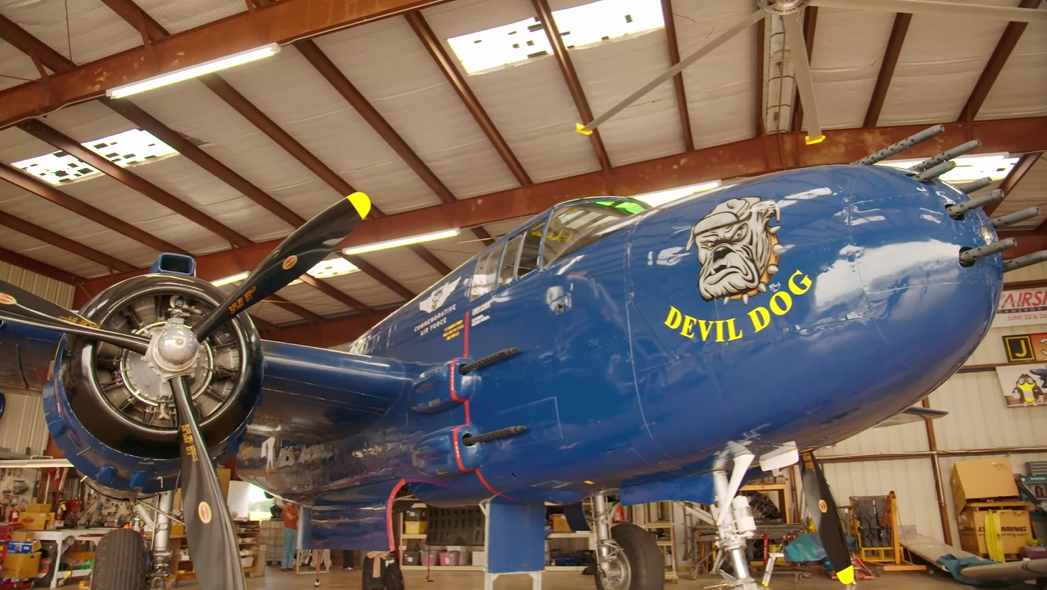
A Career Built in the Sky
Beth didn’t always plan to be a pilot. It was her father who first introduced her to flying. “My dad took me up on my 24th birthday, and I thought, ‘Wow, this is something I want to do,’” she recalled. The experience had such a strong effect on her that after five and a half years in college, she finally knew what she wanted—aviation.
She went on to build a full-time career in flight instruction. After earning her certification, Beth founded Pilot’s Choice Aviation, which has become the largest flight school in Central Texas. She still flies up to 100 hours a month training new pilots. But when she isn’t teaching, she’s behind the controls of Devil Dog, helping bring WWII aircraft history to communities across the country.
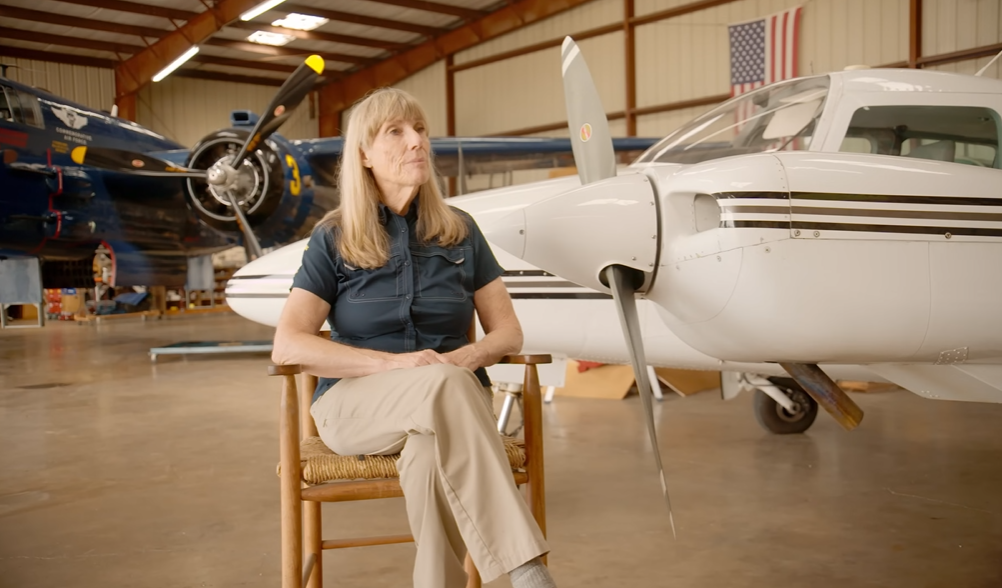
Flying the Devil Dog
The PBJ-1J is not an easy aircraft to fly. “It’s a lot heavier on the controls,” Beth explained. “You sit a lot higher… but it’s pretty awesome. Just getting inside of it, and thinking of all the 18- and 19-year-olds crawling around that airplane during World War II and doing a job they had to do—you think about it every time you crawl in.”
The Devil Dog is more than just a warplane. It is a flying museum. At airshows and public events, the aircraft draws large crowds. Beth and the Commemorative Air Force team use it to teach younger generations about WWII service members who risked everything. It also keeps the aircraft itself alive. When the group was founded in 1960, nearly all WWII planes had been scrapped or forgotten. Today, they maintain more than 175 aircraft with the help of over 13,000 members.
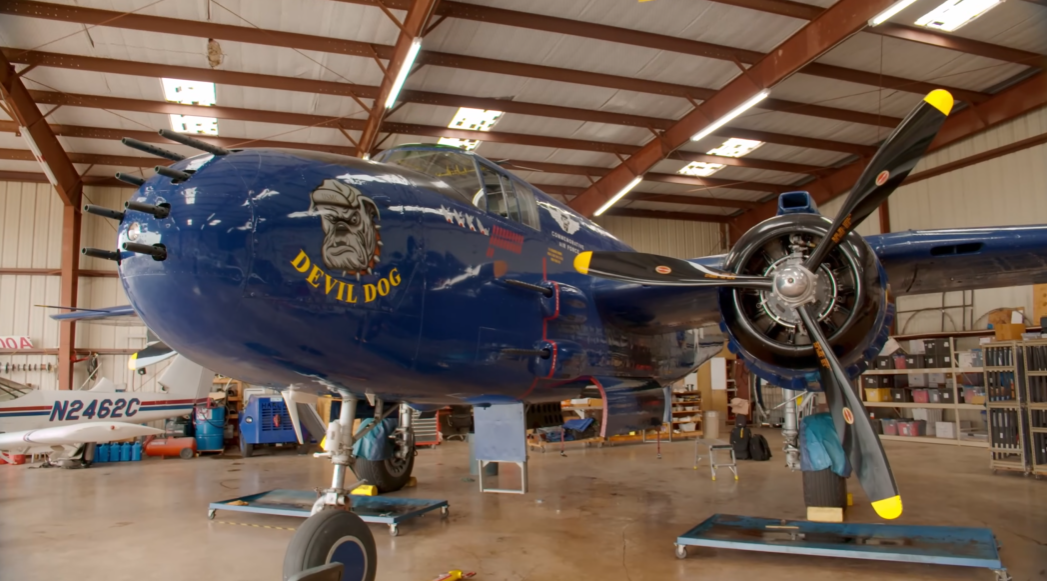
Keeping the Plane—and the Mission—Alive
Maintaining Devil Dog takes teamwork. The mechanics start working on the aircraft almost as soon as it returns from a flight. “We come back on a Sunday, and Monday they’re working on the airplane,” Beth said. This effort allows them to meet their full airshow schedule without missing flights due to mechanical issues.
Beth often flies with a crew of up to 10. These include two pilots, a crew chief, and other volunteers. The group is close-knit. “There’s kind of a camaraderie that happens when you’re up in the air working together,” she said. One crew member, Ashley Shelton, regularly travels from Oklahoma to join the team. “They’re like family,” she said. “That’s what brings me down here.”
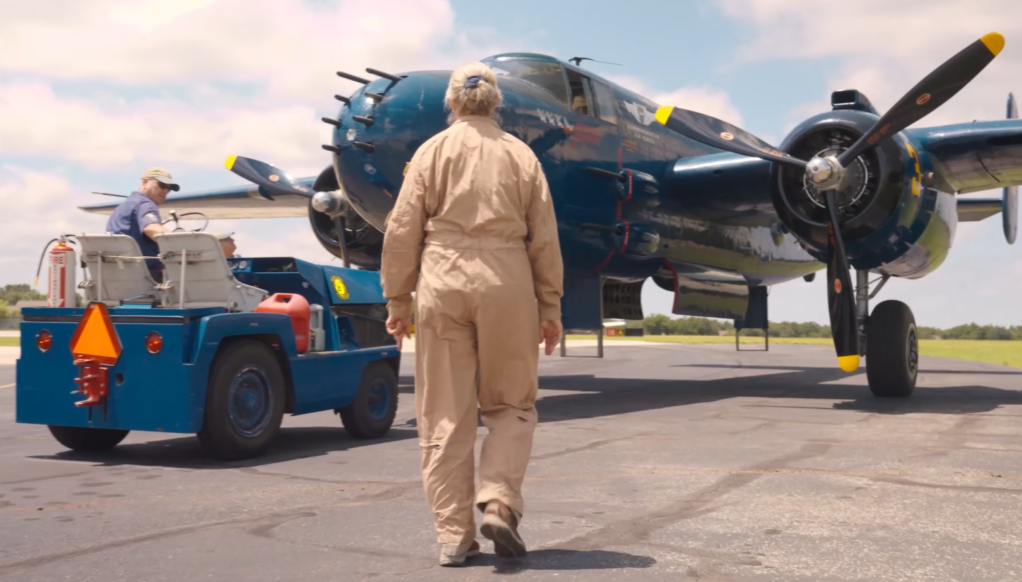
Honoring the Young Men Who Flew Them
Before takeoff, Beth gave a tour of the Devil Dog’s controls. For visitors, seeing the cockpit brings a wave of reflection. “They were 18, 19 years old flying these airplanes,” Beth said. “When I was 18, was I that responsible? No. But they had a job to do, and they had a country to protect.”
Sitting in the pilot’s seat makes it easier to understand what these young men faced. “It amazes me what these guys came through, and a lot lost their lives for us,” Beth added. The cockpit holds the weight of those memories. For Beth, flying the Devil Dog isn’t just about history—it’s about honoring the people who made that history real.
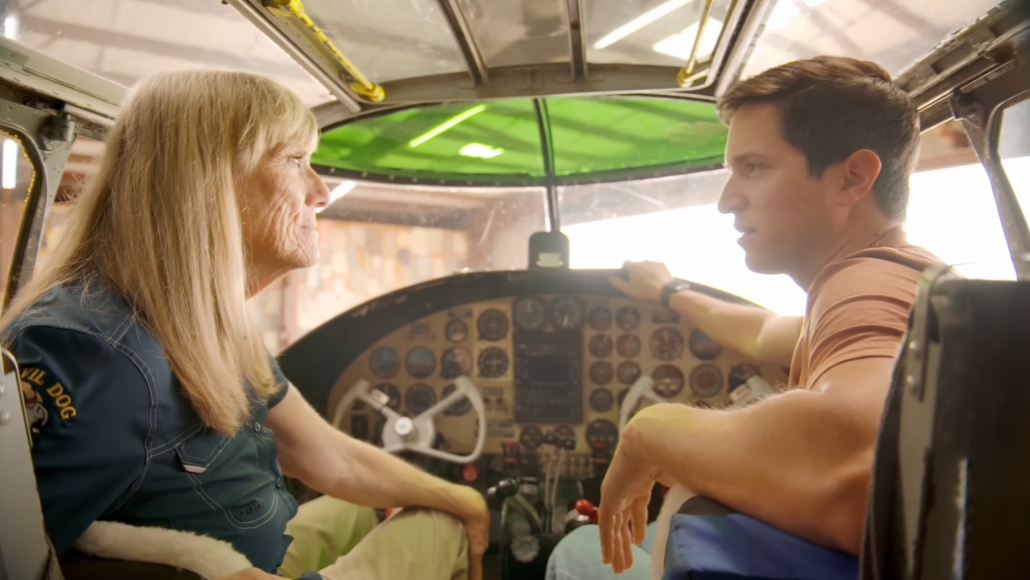
Keep going for the video below:














